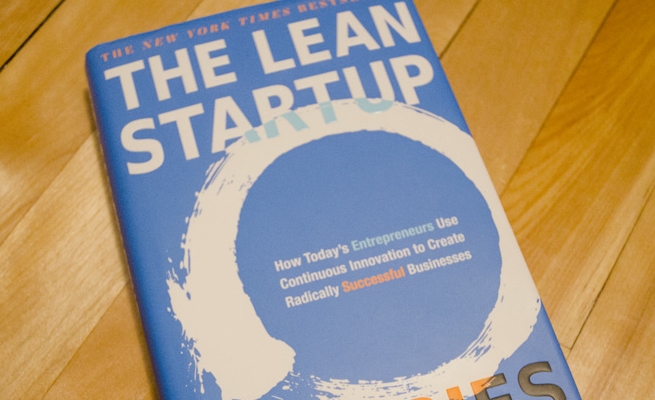Why The Lean Startup Changes Everything (Yes Even For Social Good Organizations)

Unless you have been living under a rock for the past 2 years, you have probably heard the word “lean” … and no, we are not talking about what people are trying to achieve at the gym. And no we’re not talking about spending less. We are talking about The Lean Startup by Eric Ries.
To get you caught up to “lean” speed, The Lean Startup is a revolutionary book written by Eric Ries, which advises businesses of all shapes and forms to throw away the traditional model of launching a product or service… You know, building a product for months (possibly years) only to launch it and realize that (whoops!) nobody wants it.
Been there before?
Instead, Ries encourages businesses to maximize their results and minimize their inefficiencies through his trademark Build-Measure-Learn cycle.
In the Build-Measure-Learn cycle, businesses must cut down on planning time to develop a product/service and instead, get their minimum viable product (MVP) in front of customers FAST in order to quickly gather feedback – as opposed to the traditional startup model of operating off assumptions in regards to what a customer wants.
BOOM. Now all of the rock dwellers out there have been educated (you know who you are).
But to dive a little further on what the Lean Startup is all about, here is an AWESOME (and free!) downloadable HBR overview of the Lean Startup by the grandfather of Lean, Steve Blank: Why the Lean Startup Changes Everything.
 Steve Blank is famous for developing the Customer Development methodology, which launched the entire Lean Startup movement and he also has a kickass course offered on Udacity, How to Build a Startup.
Steve Blank is famous for developing the Customer Development methodology, which launched the entire Lean Startup movement and he also has a kickass course offered on Udacity, How to Build a Startup.
Although Blank’s “Why the Lean Startup Changes Everything” article targets entrepreneurs and for-profit businesses, his article speaks volumes to social good enterprises…
Here are some quick tips for reading this through the social good lens:
- Mentally replace “startup” with organization
- Mentally replace “agile development” with program development
- Mentally replace “business plan” with your strategy
In the nonprofit world, we are CONSTANTLY asking ourselves; “how can my organization make the best of its limited resources and money raised for our programs?”
Creating the most suitable product or service to generate the greatest social impact is never an easy task. Pitching that idea to investors in today’s economy is even more problematic. Even the most successful social entrepreneurs struggle from setbacks brought on by outdated business principles.
Why waste time, money, or another strand of hair over a painstaking business strategy that will not guarantee you success? Why not go lean TODAY?!
You might argue that your team, brilliant ideas, heavy research, and investment are all you need to succeed. However, this decade-old style of business planning is a gamble based on multiple assumptions, often not tested – and even companies like General Electric and Intuit have caught onto this and have changed their way of thinking… and so should you!
Adopting lean startup methodologies to your organization is the best way forward for social good enterprises that want to have exceptional impact, less failure, and even greater efficiency. In this new wave of thinking, business plans are based on experimentation where customer feedback and iterative design is critical.
At Lean Impact, we understand that applying lean principles in your organization is tough to initiate… and we are here to HELP! Our mission at Lean Impact is to help organizations foster innovation and adopt efficient processes in order to maximize social good impact and have the best return of funds and donations.
When organizations test their assumptions out of the gates, fail quickly, and learn how to pivot for the good of their customers, they create a risk-averse pitch to their investors and are better setup for success.
… So, why hasn’t your organization gone lean yet???
Join our Lean Impact community of nonprofit rockstars and let’s all work together to make a real change in the social good space!
Photo Credit: Udacity
Want to learn more? Visit us here.
